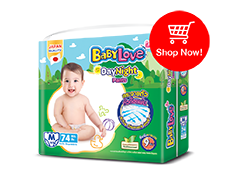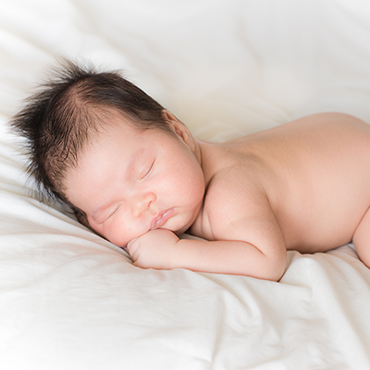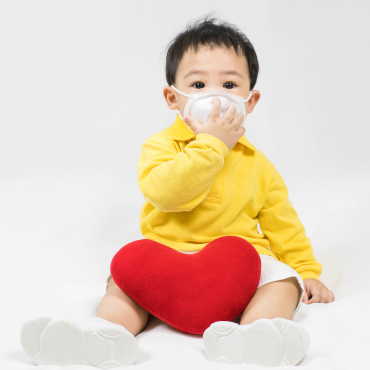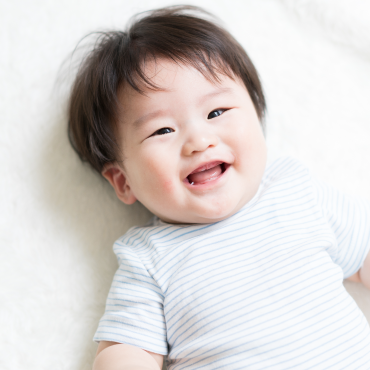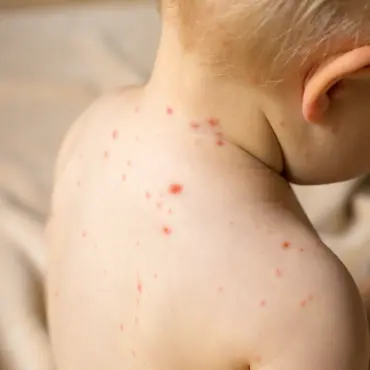Many parents may have experienced the common issue where their little ones often have a runny nose on and off. This is the leading cause of 'Nasal Allergy in Children.' If the child develops complications such as sinusitis with symptoms of pain in the sinus area and headache, there may be green nasal mucus, and sometimes there may be mucus flowing down the throat all at once. As a result, parents should not overlook those symptoms.
In this article, the doctor will take you to get acquainted with this condition. Mothers can help boost children’s immunity with 5 green leafy vegetables that they should encourage them to eat.
Get to know nasal allergy in children
The Allergic Rhinitis is commonly known as the nasal allergy or airborne allergy. It is caused by the nasal mucosa reacting to allergens, resulting in inflammation and symptoms such as a runny nose, sneezing, nasal itching, or nasal congestion.
How do the symptoms of 'Nasal Allergy in Children' differ from those of a 'common cold'?
• The symptoms of nasal allergy often manifest as chronic, recurring symptoms that come and go, occurring at various intervals throughout each day.
• The symptoms of the flu are caused by a viral infection entering the body, often accompanied by other symptoms such as fever, body aches, fatigue, sore throat. However, flu symptoms are relatively sudden and tend to resolve quickly.
What factors contribute to the development of 'allergic rhinitis in children'? Let's take a look:
• Genetic factors play a role. If either parent has a history of allergic rhinitis, the child is more likely to be at risk. If one parent has allergic rhinitis, the child has a 50-60% chance of developing it. If both parents have allergic rhinitis, the child's risk increases to 80%. However, if neither parent has allergic rhinitis, the child's risk is only 10%.
• Environmental factors also play a role, such as:
• Residing in places or environments with a high concentration of allergens, such as dust mites and cockroaches.
• Keeping pets with fur at home, such as dogs or cats.
• Exposure to air pollutants, such as exhaust fumes from vehicles, industrial emissions, cigarette smoke, or PM 2.5 particulate matter.
• Some children may experience allergies when consuming cow's milk.
How to check for the symptoms of 'allergic rhinitis in children'?
• Clear runny nose, sneezing, nasal congestion, and an itchy nose may be present, sometimes accompanied by itchy eyes, without a fever.
• Occasional coughing, such as after playing or when the air changes, nighttime coughing, and persistent coughing with chronic cold symptoms due to mucus dripping down the throat.
• Intermittent symptoms like sneezing and a runny nose in the morning but not at other times.
• Frequent bouts of chronic cold or recurrent sinusitis.
Complications from 'allergic rhinitis':
- Sinusitis with symptoms of sinus pain, headache, green nasal discharge, and occasionally mucus dripping down the throat.
- Middle ear infection, where young children may experience significant ear pain, high fever, ear pulling, and, in chronic cases, pus drainage from the ear due to a perforated eardrum, which can impact hearing.
- Sleep disturbances caused by swollen tonsils and adenoids.
- Allergic shiners (dark circles under the eyes).
- Increased risk of developing asthma that is difficult to control.
Care and Prevention:
- Promote breastfeeding to children for at least 6 months.
- Maintain overall health through a balanced diet covering all five food groups and regular exercise.
- Control and maintain a clean indoor environment by:
- Avoiding pillows or bedding made of feathers.
- Not accumulating books, toys, or stuffed animals with fur in the bedroom.
- Regularly cleaning beds, pillows, and blankets with hot water at 60 degrees Celsius for 15-20 minutes to kill dust mites, and sun-drying them. Optionally, use specially designed synthetic fabric covers for mattresses and pillows to prevent dust mites.
- Regularly cleaning the home floor, curtains, and air conditioning units.
- Avoiding the use of carpets.
- Avoiding smoking inside the house.
- Avoiding the use of dusting powder, air fresheners, and mosquito repellent sprays.
- Using HEPA filter air purifiers.
- Avoiding keeping pets with fur at home, such as cats and dogs.
- Proper disposal of waste and food scraps with tightly sealed lids to prevent cockroach infestation.
- Trying to avoid substances that cause irritation, such as car exhaust fumes and PM 2.5 particulate matter.
A sincere thank to Ms. Piyarat ‘Ann’ Lertbannaphong, M.D., a pediatric specialist
Take care of your children’s health, and pay attention to their digestive well-being! Choose diapers with Active Diamond Sheet technology, evenly dispersing liquids for superior absorption.
Introducing our latest formula – 'BabyLove Day & Night Pants' – providing complete coverage for worry-free use. Ensure the best for your little one!" Enjoy shopping value-for-money diapers with good quality, freebies and discounts at BabyLove Online Shop
Crated At 04/03/2024
















